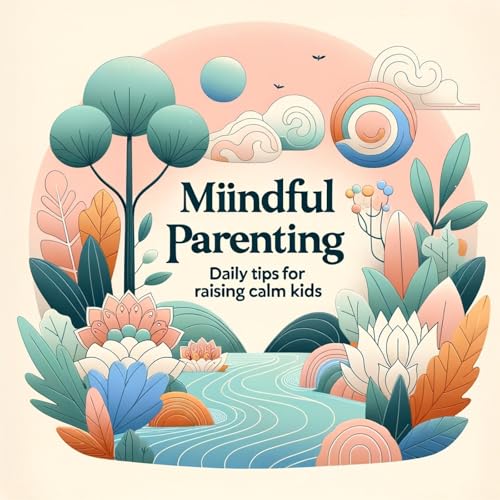
Emotional Weather Report: Helping Kids Ride the Ups and Downs with Calm
No se pudo agregar al carrito
Solo puedes tener X títulos en el carrito para realizar el pago.
Add to Cart failed.
Por favor prueba de nuevo más tarde
Error al Agregar a Lista de Deseos.
Por favor prueba de nuevo más tarde
Error al eliminar de la lista de deseos.
Por favor prueba de nuevo más tarde
Error al añadir a tu biblioteca
Por favor intenta de nuevo
Error al seguir el podcast
Intenta nuevamente
Error al dejar de seguir el podcast
Intenta nuevamente
-
Narrado por:
-
De:
Acerca de esta escucha
[Warm, inviting tone]
Welcome, fellow parents. I'm so glad you're here today. I know mornings can feel like a whirlwind – lunches to pack, backpacks to fill, little humans to dress and feed, all while managing your own inner storm of responsibilities. [PAUSE]
Let's take a moment to ground ourselves. Wherever you are – whether you're listening while folding laundry, sitting in your car, or stealing a quiet moment between tasks – take a deep breath with me. [PAUSE]
Close your eyes if you can. Imagine your breath is like a gentle tide, washing in and out. Not forcing, just flowing. [DEEP BREATH] Feel your shoulders soften, your jaw release. [PAUSE]
Today, I want to share a practice I call the "Emotional Weather Report" – a powerful tool for helping children (and ourselves) understand that emotions are like clouds. They pass through, they change, but they're not permanent. [PAUSE]
Imagine emotions as weather patterns. Anger might be a sudden thunderstorm. Sadness, a soft, misty rain. Happiness, brilliant sunshine. The key is teaching our children – and remembering ourselves – that no weather lasts forever. [PAUSE]
Here's a simple technique: When your child is experiencing a big emotion, sit with them and say, "What's the weather like inside you right now?" This creates distance from the emotion, helps them observe without getting swept away.
Practice this with curiosity, not judgment. "Oh, looks like a stormy day inside. I'm here with you." [PAUSE]
Just as a meteorologist observes without trying to change the weather, we can observe our children's emotions with compassion and presence. [PAUSE]
Before we close, take one more deep breath. Feel the steadiness within you – your own inner anchor. [PAUSE]
Today, when emotions rise – yours or your child's – remember: this is just weather passing through. You are the sky, vast and unchanging, watching with love and patience.
[Gentle closing]
Breathe. Be kind to yourself. You're doing important work.
Todavía no hay opiniones



